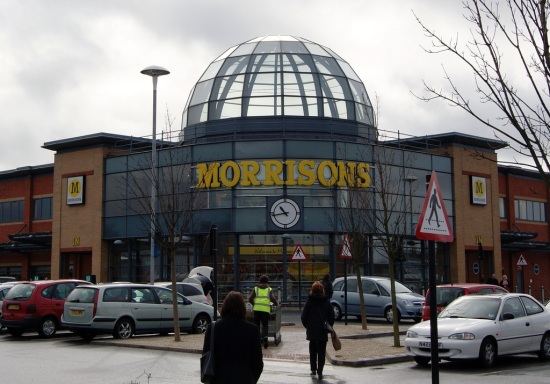In the past few years, supermarkets have had to become more and more inventive in order to draw customers into their stores. With fierce rivalry between the top four British brands – Tesco, Asda, Sainsbury’s and Morrisons – as well as the growing popularity of discount competitors such as Aldi and Lidl, the battle for consumers is definitely one that all supermarket chains are drawn into eventually.

One of the most successful methods of drawing custom has been demonstrated by Tesco, with their range of convenience stores which now number in the hundreds across the country. The Metro stores stock essentials, saving consumers the need to traipse around large superstores and queue for long periods of time when only picking up a loaf of bread or pint of milk.
Now, Morrisons plans to jump on this particular band wagon, with its strategy for a chain of convenience stores being mapped out this week by the board of directors. Should the idea prove to be a success, the supermarket giants hope to open several hundred outlets over the course of the next few years.
Of course, this would mean Morrisons is placed in direct competition for sites with Britain’s most popular supermarket chain, Tesco, and third most popular, Sainsbury’s. At present, Sainsbury’s has over 450 convenience stores across the country, while the number of Tesco’s smaller stores numbers well over 2,000. All three chains will be looking to expand their commercial property portfolios on a regular basis, meaning that the competition for sites is due to become hotter than ever.
However, the Bradford-based supermarket chain is confident that customers will be attracted to their stores after a successful trial period over the course of the past year. Five different locations, including Ilkley, Manchester city centre and Doncaster, were all tested, with small stores being set up in order to test the habits of different types of consumer.
It certainly seems that Morrisons has to do something to shake up its performance, following what analysts predict will be a disappointing first half in terms of profits. In fact, experts are claiming that Morrisons will announce a two per cent drop in profit up to the end of July, compared to last year’s £442 million in the same period.
Chief executive Dalton Philips is also expected to discuss the potential of online shopping at the planning meeting, which will be held this Thursday. This is expected to include only non-grocery items at first, although Mr Philips is currently examining detailed reports into the profitability of grocery delivery.
In the past, Mr Philips, who became head of the commercial property supermarket chain two and a half years ago, has been known for his stance on grocery delivery services. He voiced his concern that the online sales of groceries, and subsequent delivery from stores, is not profitable enough to be worthwhile – yet analysts are now claiming that, by not offering the service, Morrisons are running the risk of desertion by loyal customers.
Instead, Mr Philips has largely focused on transforming many of Morrisons’ stores into the “Fresh” range. These stores sell more fresh fruit and vegetables and have larger meat and delicatessen counters, preferring natural produce to processed foods. So far, at least 50 stores within Morrisons portfolio have been converted to this format, with this figure expected to double in the next year.
Do you think that convenience commercial property stores are a good idea as a change from large supermarkets? Or do you believe that existing small stores, such as the Co-Operative and the Spar, should be protected from monopolisation by supermarket giants?
Previous Post
CA Commercial Property Owner Seeks Eviction Order Against Medical Marijuana Dispensary